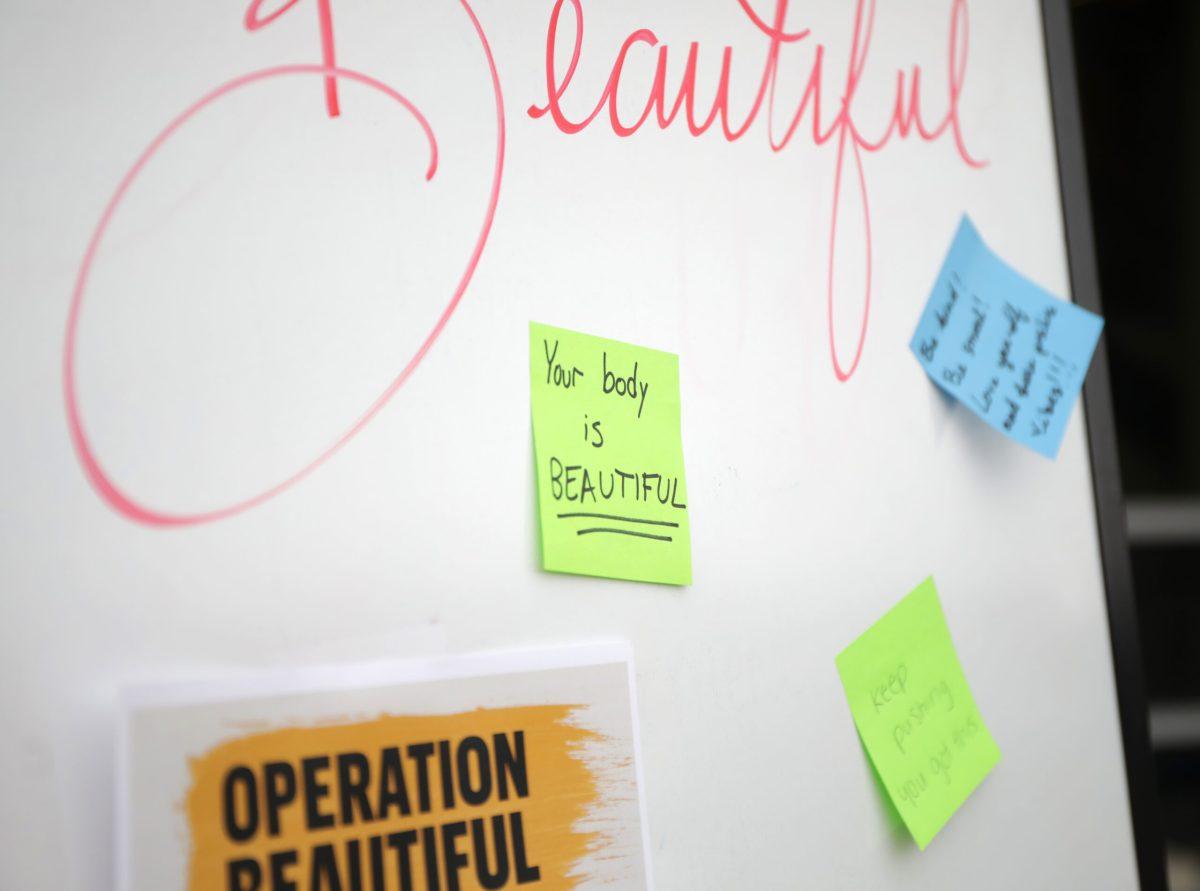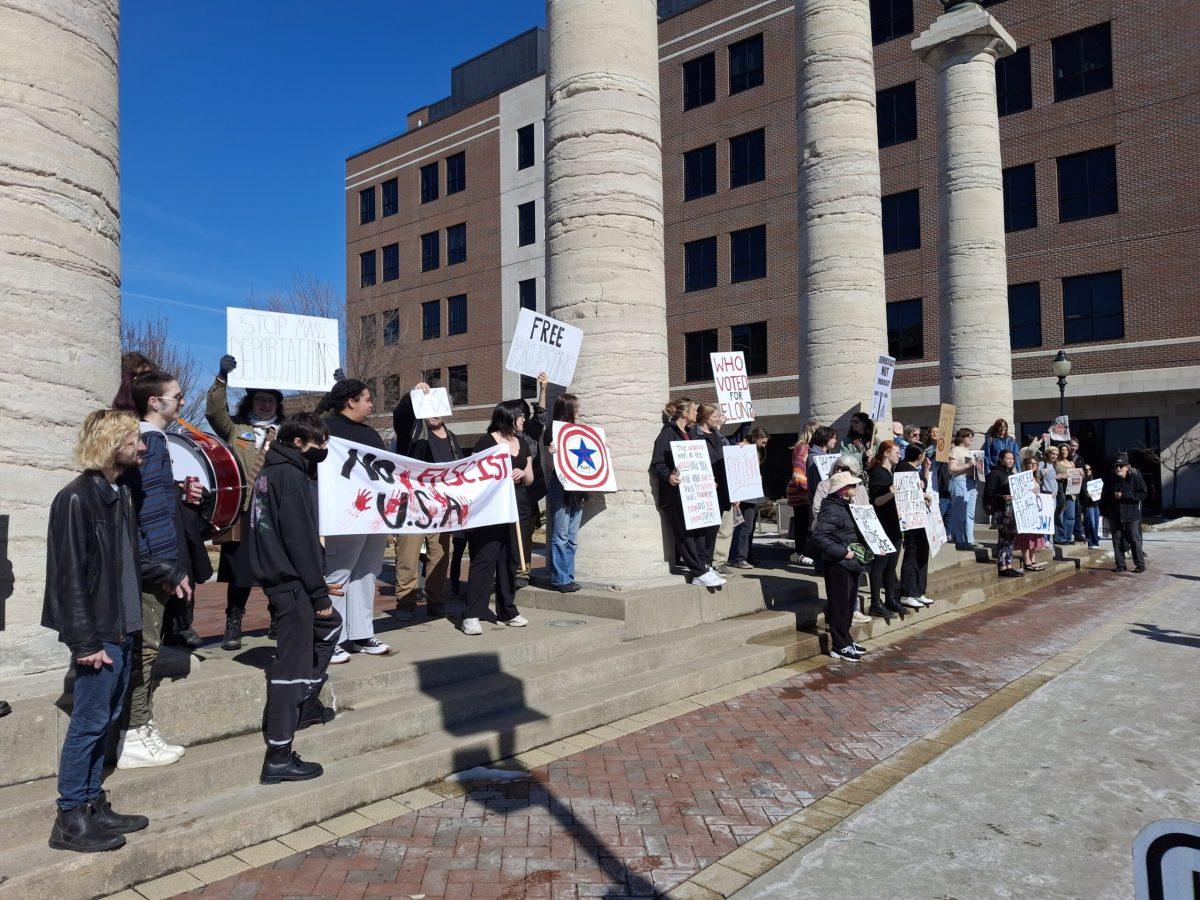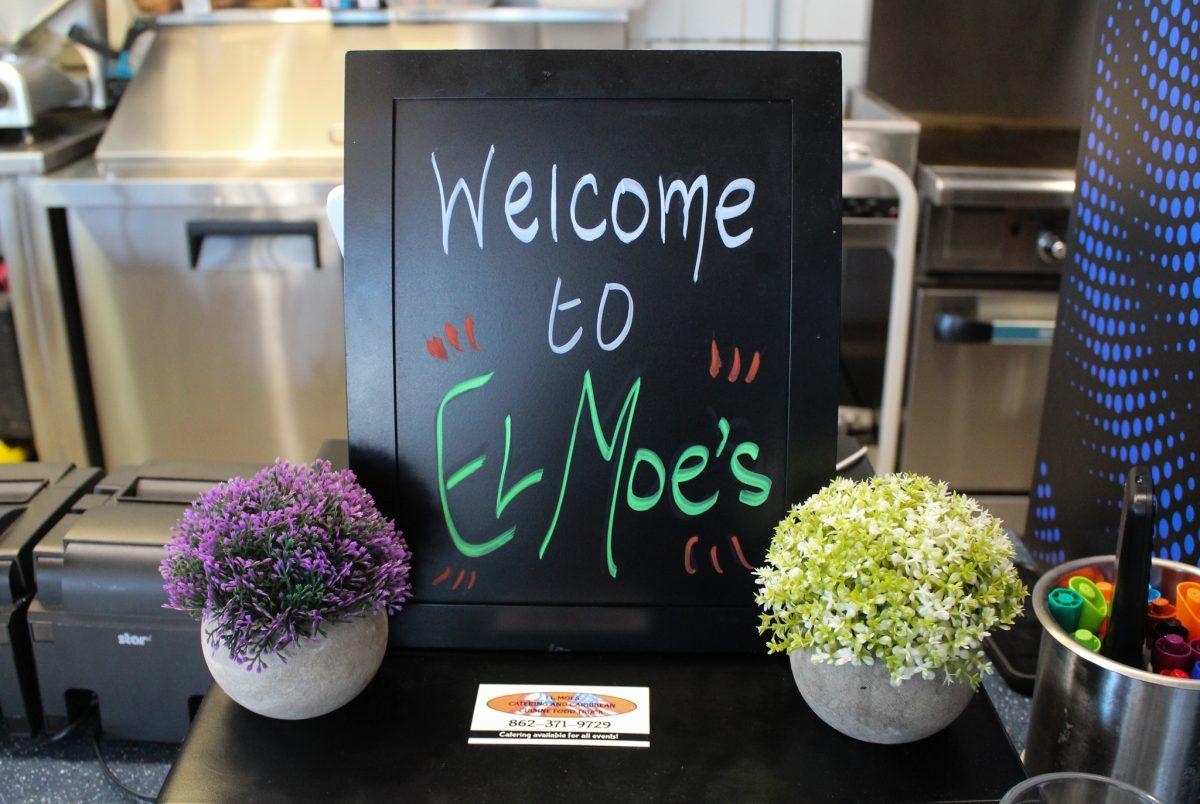Psychologist Remya Perinchery, Professor Aftan Bryant and MU students speak out for Eating Disorder Awareness Week at MU, marked by an “Operation Beautiful” event in front of the Student Center.
Trigger Warning: This content discusses the topic of eating disorders
On Wednesday, Feb. 23, MU hosted an event called “Operation Beautiful”, a collective art project where students came together to write kind messages of support on sticky notes for their peers who may be struggling with disordered eating. This collage of compassionate words was featured outside the MU Student Center from 11 a.m. to 1 p.m.
The booth was run by Remya Perinchery, a postdoctoral resident and psychologist at the MU Counseling Center. She said eating disorders are especially prevalent in college-aged adults, and this is a crucial time to be speaking about and educating others on the topic of eating disorders (EDs). The purpose of the booth, Perinchery expressed, was to promote self-acceptance and acknowledge the issue of EDs on campus.
Aftan Bryant is a registered dietitian and adjunct professor who teaches an elective 3-hour course offered at MU about eating disorders. She is a staunch advocate for the kind of awareness that events like Operation Beautiful promote.
“Awareness of eating disorders [and] things to watch out for in your friends … are very important because the quicker someone can get treatment, the quicker they can recover,” Bryant said.
Lauren Green, an MU freshman present at the event, said she stopped by the booth to write a note of encouragement to her peers and support the positive message of awareness and acceptance. Green said that on college campuses, awareness is especially important in a digital age.
“I think in general, the media targets young people,” Green said. “Young people need to look a certain way in order to be accepted, and that’s why I think a lot of younger people struggle with eating disorders.”
One study conducted by Pepperdine University in 2020 showed that the use of social media in general correlated to self-esteem in adolescents, but additionally the type of media they were consuming (e.g. whether they liked body positive posts versus “fitspo” images had a correlation to self-perception as well, which has the possibility to lead to disordered eating.
Perinchery noted that many times, a person’s risk of being seriously injured or hospitalized by an eating disorder is affected by whether or not they seek help or have recovery resources readily available to them. Access to help and recovery may depend on a number of external or societal factors beyond a person’s control.
“A lot of times we see it in women and young women, but there are a lot of identities where it shows up and we don’t see it,” Perinchery said. “People of color, men, different gender identities … It’s a lot harder for them to speak up about it.”
Bryant said that struggles with food and disordered eating breach lines of race, ethnicity, sexuality and gender.
“The biggest stigma is that eating disorders happen to young white women,” Bryant said. “And while eating disorders are prevalent in that population, people need to know that men also struggle with eating disorders, the LGBTQ+ population greatly struggles with eating disorders and people of color are diagnosed with eating disorders at a much lower rate.”
Perinchery and Bryant also agreed that college can be a particularly risky time for those who are already genetically predisposed to this bio-psycho-social condition.
“Triggers can often be big life transitions, like moving away from home, going to college or being a college athlete and having new pressures and just eating differently when you move out of your parents’ house,” Bryant said.
MU’s Operation Beautiful event aimed to ease this stress and remedy these potential triggers.
“Events like this shed light on issues that are taboo, [but] shouldn’t be. I think it just normalizes talking about it more. It’s nothing to be ashamed of,” Green said.
For students struggling with disordered eating, or if they suspect one of their peers may be struggling, Perinchery recommended calling the Counseling Center to work with one of their psychologists and doing personal research online about EDs and recovery. Bryant also recommended the National Eating Disorders Association website to get started looking for help with recovery. There is a screening tool on the website that uses a series of questions to advise if you or someone you know is at risk of having an eating disorder.
Edited by Namratha Prasad | [email protected]













